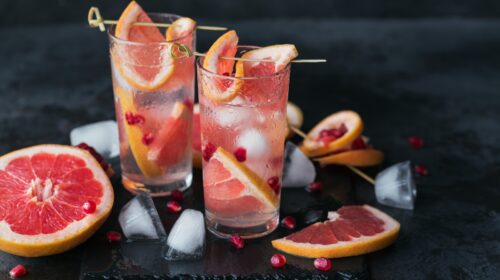Drink too much this holiday season? Been drinking too much all year? Been drinking too much your whole life? If you answered yes to any of these, you could start taking your health and life back from alcohol by taking two little but mighty words to heart: dry January. Recovery Unplugged has your guide to dry January, including why and how you should celebrate it and how to make it…well…less dry.
What Is Dry January?
Dry January is a global movement started in the UK to encourage alcohol-free living for a month and beyond. It’s a public health campaign urging people to abstain from alcohol. Though started in the UK, Dry January is gaining popularity globally, including Europe and the US.
Why Do People Do This?
People celebrate Dry January for a variety of reasons. What began as a way to start the New Year off with a clear head, clean system, and a healthy outlook has become a rallying and mobilization cry for people dealing with all types of alcohol-related issues. Some of the many reasons you may want to celebrate Dry January may include:
- You Feel You’re Drinking Too Much in General
- Drinking is Causing Health, Cosmetic, Quality-of-Life Problems
- You Want to Be Healthier Overall
- Your Experiencing Dependency and Withdrawal Symptoms
- You Want to Prove You Can Control Your Drinking
- You’re Supporting a Loved One Who Is Trying to Quit
Dry January is also an opportunity for people battling alcohol abuse and addiction to start their recovery off with a globally supportive community around them. The first alcohol-free month can be the hardest. By immersing yourself in a phenomenon that offers support, guidance, solidarity, you can feel less alone as you make the transition to sobriety.
What Will Dry January REALLY Do for Me?
The short answer to this question is “everything.” There are innumerable health and quality-of-life benefits to quitting drinking even for a short while, including but not limited to:
- Potential Improvement in Heart, Liver, and Brain Function
- Potentially Better Sex Life
- Financial Savings
- Weight Loss
- Improved Acuity, Alertness, and Concentration
- Improved Digestive Health
- Clearer Skin
An alcohol-free life may contribute to reduced personal conflicts and improved relationships. When you quit drinking, you take back control and put yourself in the driver’s seat.
So…How Can I Participate in Dry January?
First off…get rid of the booze. Remove all alcohol from your environment and let your friends know what you’re doing so they won’t try and get you to go to bars or drink socially in any way. Once you’ve resolved to stop drinking, there are any number to spend 31 days as a teetotaler, such as:
- Have Mocktail Parties with Sober Friends
- Share Your Dry Journey on Social Media
- Celebrate Sober Artists, Writers, and Thinkers
- Take A Non-Boozy Trip or Vacation
- Take Up a New Hobby to Distract Yourself from Drinking
- Organize or Attend Alcohol Awareness Events in Your Area
- Participate in activities like running or walking a 5K to support sobriety
You can also use your Dry January journey as an opportunity to advocate for someone in your life who has battled alcoholism or even an addiction treatment or prevention organization in your community.
What Happens If I Can’t Stop Drinking?
If you find yourself unable to complete the full 31 days of Dry January without drinking, it may be time to take a deeper look at your alcohol consumption, even if you didn’t think you needed to. Nobody wants to admit to themselves or others that they have a drinking problem but being truthful with yourself is nothing to be afraid of. Go to meetings, talk to your doctor about your dependency, and, if necessary, get yourself into treatment. Recovery Unplugged is ready to help you or your loved one heal.

























